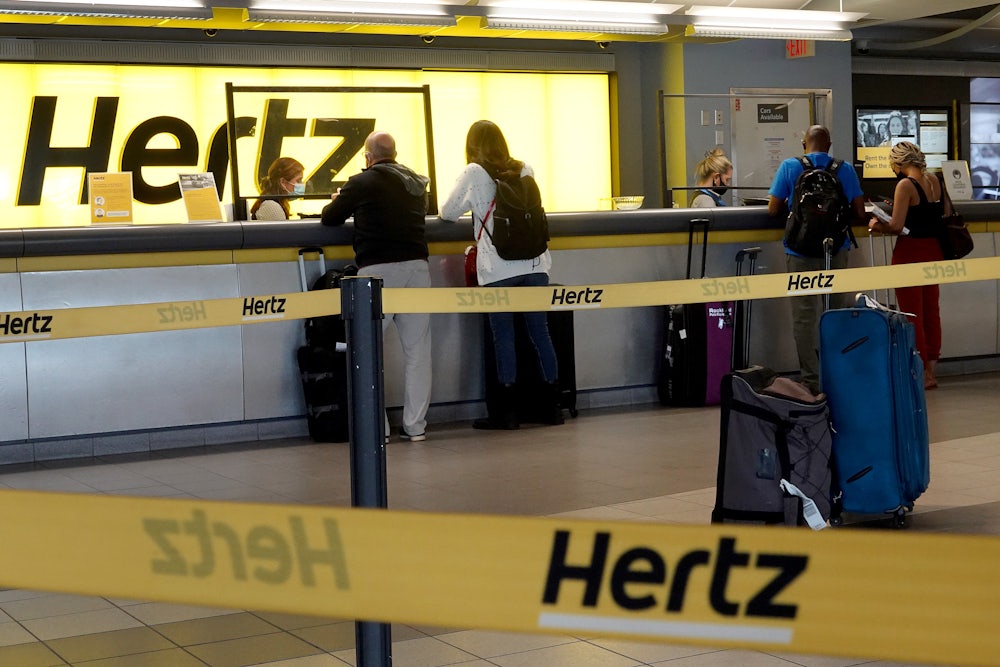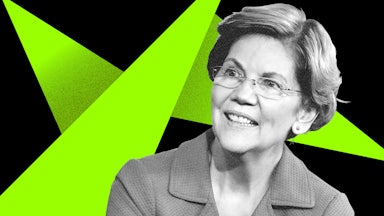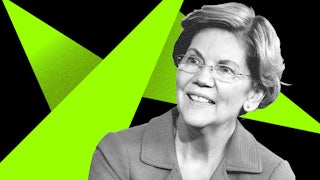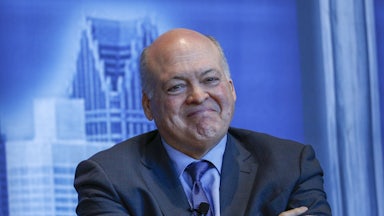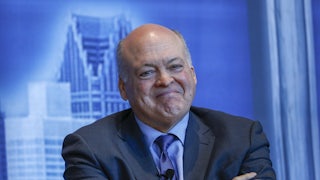Is Hertz car rental a fantastically successful company or a pathetically weak one? That isn’t an easy question to answer, and the reason why crystallizes a lot about what’s gone wrong with American corporations.
The case that Hertz is a fabulously successful company begins with the fact that its market share is a very healthy 15 percent, according to a 2018 calculation by the Open Markets Institute. Granted, that’s way down from the 61 percent market share Hertz commanded in the mid-1960s until Avis, then at number two, pushed Hertz’s market lead down to 49 percent with the ingenious slogan “We Try Harder.” But Hertz, which also owns Thrifty and Dollar, still places second after Enterprise (27 percent), which also owns Alamo, National, and Zimride. Avis, now number three (8 percent), owns Budget, Zipcar, and Payless Car Rental, and together the three companies control 50 percent of the market. I don’t recall ever in my life renting a car from a company that isn’t today part of this oligopoly.
In October, Hertz announced a 39 percent profit for the third quarter, its highest since 2015. That’s good, right? The company’s so flush that last month it authorized up to $2 billion in stock buybacks. That earned the company a stern December 6 letter from Democratic Senator Elizabeth Warren chiding it for its greed in rewarding “executives, company insiders, and big shareholders.” Hertz told CNN that it had received Warren’s letter and intended to respond, though as of Tuesday afternoon it had not done so.
The case that Hertz is a pathetically weak company begins with the fact, noted pointedly by Warren in her letter, that it
entered 2020 “bloated with debt” and was unable to withstand the economic fallout of the Covid-19 pandemic, filing for bankruptcy in May 2020. The company laid off or furloughed 20,000 workers and sold almost 200,000 cars from its fleet, reducing the fleet size by nearly one third, before emerging from bankruptcy in June 2021.
It’s true. Those 20,000 workers represented half the company’s workforce. Even before Covid-19, Hertz’s debt load was $17 billion. And before that, the company had been struggling for years, partly because, after a bidding war with Avis, it paid too much ($2.3 billion) to buy Dollar and Thrifty. Carl Icahn sold off his 39 percent stake in the company during Hertz’s bankruptcy, recording a $2 billion loss. Newly purchased by two finance companies, Hertz emerged from bankruptcy a mere five months ago.
Have you been inside a Hertz office lately? I was, last month, at Los Angeles International Airport. It didn’t feel like a successful business. It wasn’t like stepping into, say, an Apple store, agleam with brushed steel and white walls and pleasant, impeccably groomed salespersons. It wasn’t even like stepping into a Starbucks. It was like stepping into a soup kitchen for the homeless: short-staffed, shabby decor, long lines, unhappy customers. A clerk told me to fetch my car from a separate office a couple of miles away (“Take an Uber”); the industrial-looking building I was sent to didn’t have any kind of sign indicating whom I was doing business with. The sole attendant on the premises said it didn’t matter that I’d booked a reservation. There were no cars. The managers had overbooked, he said, and whenever they do that, they go home and leave me to handle irate customers like you. I felt sorry for him.
Yes, Covid-19 has created supply chain problems for Hertz and other rental car companies, and also a labor shortage that makes it hard for Hertz to staff back up. Still, it was hard to reconcile my customer experience with an enterprise that’s so successful its profit margin is 39 percent and so flush that it’s buying back its own stock. Profits were up not because Hertz was renting more cars; they were up because Hertz was renting fewer cars, pricing them, according to an analyst cited by Warren, 147 percent higher than before the pandemic.
The supply chain snafu drove up the price of cars, but, as Warren further pointed out, Hertz’s pricing for what it called “the elements in vehicle rental pricing that management has the ability to control” was up 44 percent over the previous year. Hertz wasn’t enjoying financial success in spite of its seedy rental offices, its loss of half its workforce, its inability to furnish many rental cars, and the outrageously high price it commanded for those few rental cars that were available. It was enjoying financial success because of these things. It was acting very much like a corporation owned by two finance companies.
What’s happening at Hertz is emblematic of what’s been happening at American corporations. Some people look at this picture and conclude that corporations’ increased concentration and rising profits demonstrate they’re becoming more powerful than ever. That’s true. Other people look at corporations’ indifferent treatment of all personnel except those in the C-suites, their disinclination even to pretend that they provide customer service until someone makes a stink on social media, and their desperation to please shareholders and conclude that corporations have become pitifully weak. That’s also true.
The true heyday of the American corporation was the 1920s through the 1960s. That’s when big corporations maintained institutional identities independent of Wall Street. These corporations were so powerful, Nicholas Lemann noted in his 2019 book, Transaction Man, that they didn’t typically need banks to furnish capital; they invested from their own ample revenues. And because labor unions were still powerful, these corporations allocated a much larger portion of their revenues to their workers than they do today. The result was a conformity criticized in 1950s books like The Organization Man and The Lonely Crowd, but these corporate colossi sustained a thriving working class.
Today, according to University of Michigan sociologist Gerald F. Davis in his 2016 book, The Vanishing American Corporation, “corporations are in decline.” They’re becoming “vestigial rather than central pillars of the economy,” unable to control their own destinies.
For most of the twentieth century, corporations followed a model described by Adolf Berle and Gardiner Means in their 1932 book, The Modern Corporation and Private Property, wherein managers didn’t much care what the shareholders wanted. They didn’t have to. By the 1970s, conservatives like Milton Friedman judged this unaccountability a scandal and said a corporation’s sole responsibility was to its shareholders. In the 1980s, President Ronald Reagan made Friedman’s critique the policy of the U.S. government. In doing so, he put corporations at the mercy of the financial services industry. One reason it’s so easy these days to take a corporate CEO from one industry sector and plug him into another is that CEOs today are all essentially bankers, interested mainly in raising the company’s stock price (and therefore their compensation packages).
Today we’re enjoying a heyday for corporate profits even as the corporation experiences mass extinction. The number of American companies listed on the stock market, Davis noted, dropped by more than half in the first 15 years of this century, with departures outnumbering initial public offerings almost every year. The formula today to be a successful entrepreneur is to build a company that’s so innovative one of the still surviving bloated conglomerates will buy it and either absorb it or shut it down completely. Only suckers dream of building their own freestanding corporation.
So: Is Hertz a hugely successful company? Yes, by its own lights. No, as best Warren can see. It’s hard to disagree.
